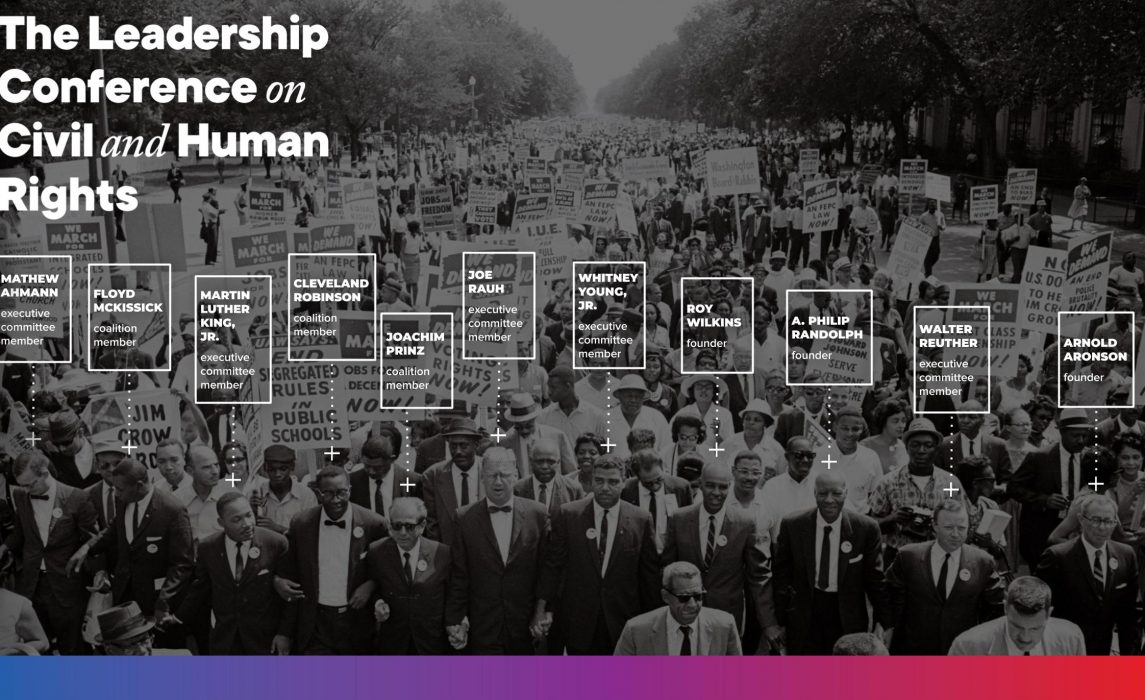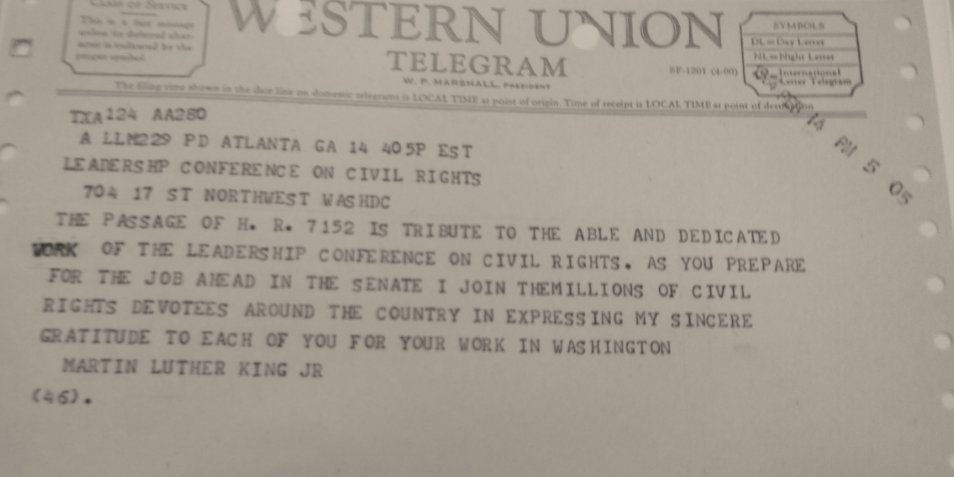Strength in Coalition
The Leadership Conference was founded in 1950 as the Leadership Conference on Civil Rights by A. Philip Randolph, head of the Brotherhood of Sleeping Car Porters; Roy Wilkins of the NAACP; and Arnold Aronson, a leader of the National Jewish Community Relations Advisory Council. Their visionary leadership was grounded in their commitment to social justice and the firm conviction that the struggle for civil rights would be won not by one group alone, but through coalition.
While many marched in the streets, sat-in at lunch counters, and refused to ride in the back of the bus, The Leadership Conference worked to get Congress to pass legislation that would protect the civil and human rights of all people in America. The Leadership Conference lobbied for and won the passage of the Civil Rights Act of 1957, the Civil Rights Act of 1960, the Civil Rights Act of 1964, the Voting Rights Act of 1965, the Fair Housing Act of 1968, and also helped to organize one of the defining events of the 20th century — the March on Washington for Jobs and Freedom in August 1963.

Our founders, members of our executive committee, and coalition partners were on the front lines of the 1963 March on Washington for Jobs and Freedom in Washington, D.C. Bayard Rustin and Dr. Dorothy Height, who are not pictured but would both later become chairs of The Leadership Conference, were central figures in organizing the march and its program.
These laws transformed the nation, outlawing discrimination in nearly every facet of American life, and made it more fair and equitable for all.
In 1969, The Leadership Conference Education Fund was founded as the education and research arm of The Leadership Conference. The Education Fund’s initiatives are grounded in the belief that an informed public is more likely to support effective federal civil rights and social justice policies.
In January 2010, the Leadership Conference on Civil Rights changed its name to The Leadership Conference on Civil and Human Rights, a move designed to reflect the founding principles of The Leadership Conference and recognize the central importance of both “civil rights” and “human rights” in the work of the coalition. The Leadership Conference Education Fund, having been known as the Leadership Conference on Civil Rights Education Fund for many years, revived its original name, The Leadership Conference Education Fund.
For 75 years, we’ve led the fight for equal opportunity and social justice.
Today, The Leadership Conference remains the nation’s oldest, largest, and most diverse civil and human rights coalition, committed to the protection and advancement of civil and human rights for every person in the United States. It has become the nerve center for fighting discrimination in all its forms and expanding opportunity and fairness for all Americans. The Education Fund complements this work by building public will for federal policies that promote and protect the civil and human rights of all people in America. Its campaigns empower and mobilize advocates around the country to push for progressive change in the United States.
Our Coalition’s Impact
Upon the U.S. House of Representative’s passage of the Civil Rights Act of 1964 (H.R. 7152), Dr. Martin Luther King, Jr. sent this telegram to our coalition:

The passage of H.R. 7152 is tribute to the able and dedicated work of the Leadership Conference on Civil Rights. As you prepare for the job ahead in the Senate I join the millions of civil rights devotees around the country in expressing my sincere gratitude to each of you for your work in Washington.
Martin Luther King, Jr.